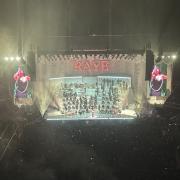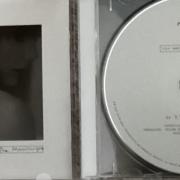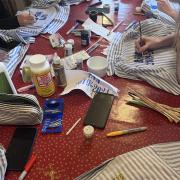
The current production of Company at the Gielgud Theatre in the West End caused certain amounts of trepidation among fans and those familiar with the original before it opened. The Sondheim classic, first performed in 1970 and based around the story of a bachelor living in New York was groundbreaking in musical theatre for its time, but the story of a good looking successful straight man seemed a lot less shocking today. This is why Marianne Elliott, the director of, among many other productions, ‘War Horse’ and ‘The Curious Incident of the Dog in the Night Time’ decided to take it in a new direction. Bobby, the protagonist has become Bobbie, a woman every bit as successful and adored, but one for whom the societal pressure to get married is a lot stronger, even in 2018. The gender flip is now an integral part of the production - as someone who never saw or knew the original the new production seems to make far more sense- a woman who’s biological clock is ticking and who has been conditioned since childhood to expect marriage as a role and purpose in life is a more relatable and lifelike character to my generation than the original Bobby, who to me comes across as more cruel hearted, less vulnerable and hence less likeable. But to someone like my mother, who knew and loved Company when it first revolutionised Broadway, it is harder to adjust. It is not, she says, that Rosalie Craig (as Bobbie) does not do a brilliant job, or that the change from neurotic bride-to-be ‘Amy’ to a gay counterpart ‘Jamie’ (Jonathan Bailey) is not equally convincing and hilarious, but rather that once a casting is fixed in your mind it is difficult to commit yourself to believing in the story in a different way.
The trend of gender flipped casting has been steadily rising in recent years. Most prolifically in cases such as the Ghostbusters reboot, or the Royal Shakespeare Company’s new productions, such as Romeo and Juliet with Prince Escalus (Beth Cordingly) and Mercutio (Charlotte Josephine) where roles written as male are played by actresses. There has been an amount of backlash against this type of casting, but it cannot be denied that performance has historically always played around with gender - in the original productions of Shakespeare’s plays, for example, the female roles would have been played by boys. Gender flipping, especially in cases such as Company, adds complexity to roles since it adds layers of nuance and perspectives on the roles not previously seen. With Bobbie, the fact that she is single can be re-examined within the context of a society which tells women constantly that their role is to become part of a couple before it’s too late - something which isn’t forced upon modern men nearly as much. For pieces of art to stay relevant and accessible to modern audiences, they must be seen through the eyes of the modern world, and this is a modern world that (as much as some dislike it) focuses more on the stories and emotions of women and people of colour. It therefore makes sense to take pieces of theatre such as Company, and see them from the point of view of today’s audience, and in this case it has been extremely well done.



























